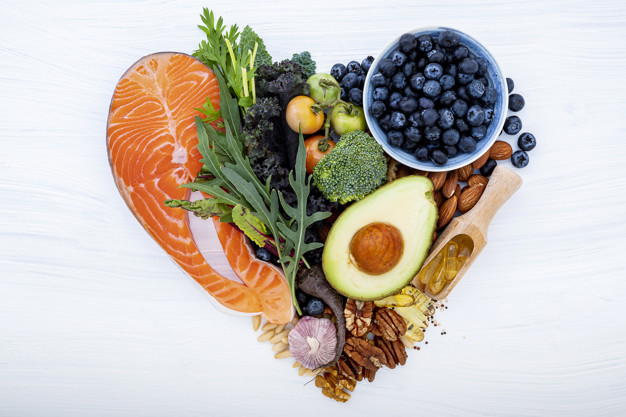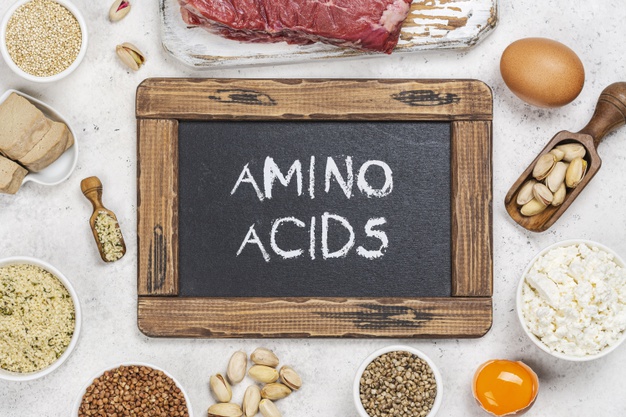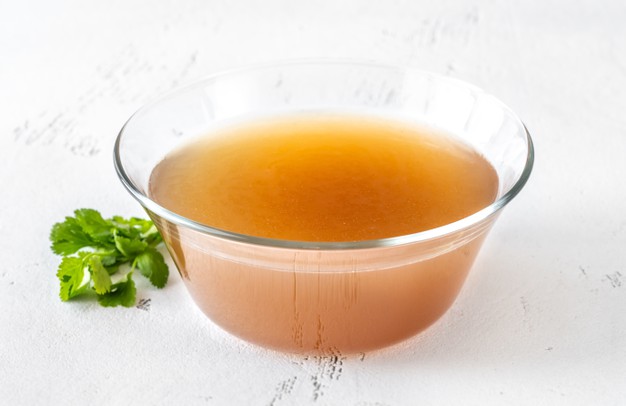Threonine is an essential amino acid that means it should be essentially provided to the body through diet or supplements as the body cannot synthesize it. It acts as the building blocks for proteins thus its consumption is thought to be very much effective for regulating protein balance in body. It has been widely used for promoting immune system, digestive health, nervous system, mental health, muscular health and wound healing.
Chemistry
- General formula of threonine is C4H9NO3
- It contains a carboxylic group, an amino group and hydroxyl group containing side chain in its structure
- It is uncharged but polar in nature
- It is generally found in L form
- Basically it has four stereoisomers
Mechanism of action
This amino acid is essentially required by the body for promoting the health of nervous system and for decreasing the susceptibility of developing neurodegenerative disorders. It has seen that threonine is transformed into glycine in body, which works on brain for preventing spasticity (unwanted and constant muscle contraction).

Sources
Foods, which are rich in threonine are listed below –
- Beef
- Turkey
- Chicken
- Pork
- Lamb
- Crab
- Lobster
- Oatmeal
- Gelatin
- Collagen
- Tuna
- Milk
- Tofu
- Soybeans
- Egg
- Green peas
- Pumpkin seeds
- Avocados
- Teff
- Carrot
- Bananas
- Kidney beans
- Spirulina
- Edamame
- Lentils

Supplements
- Being an essential amino acid it should be consumed through diet but it can also be consumed through supplements
- Threonine deficiency is not so common among those individual who consume protein rich especially animal based protein rich balance diet but vegans are more prone to develop threonine deficiency therefore they should consume threonine supplements
- Threonine supplements are widely available in the form of capsule or in powdered form
- It is always better to consume threonine from natural sources because too much consumption of supplements may cause toxicity
Health benefits
Role on immunity
- Body requires threonine for supporting proper immune functions
- It has seen that thymus gland utilizes this essential amino acid for stimulating the synthesis of T lymphocytes or T cells and also helps to improve their activity
- It also helps to strengthen the defense mechanism of the body
- It helps to promote programmed cell death as well

Role on muscle
- It plays imperative role in promoting the growth and development of muscle
- It has seen that consumption of threonine is very effective for improving muscle mass
- It also plays vital role in making the muscle strong
- It helps to maintain the elasticity of muscle as well
- It helps to prevent muscle spasm too
- It helps to produce glycine and body utilizes glycine for synthesizing creatine that acts as an effective source of fuel for muscle, which helps to repair muscular damages
- It also plays vital role in regulating muscle contraction

Role on digestive health
- Threonine plays important role in improving overall digestive health of an individual
- It is associated with producing mucous gel layer, which helps to cover the digestive tract and also protects it from injuries
- It helps to promote the functionality of gut mucous barrier thus improves gut health
- It helps in the synthesis of intestinal mucosal protein that helps to promote the absorption of nutrients as well as immune sensing and limits the transportation of harmful antigens or microorganisms through it

Role on skeletal system
- Threonine is essentially required by the body for producing collagen and elastin
- We know that collagen and elastin both are considered as the most plentiful proteins found in muscle, bones, tendons, ligaments, blood vessels and skin and play imperative role in maintaining their health
- It also helps to promote the health of connective tissue thus its consumption is very much effective for obtaining healthy bones
- Elastin helps to resume the shape of ligaments and tendons after their contraction or stretching
- It also helps to improve the strength of bones
Role on nervous system
- Threonine in considered as an important essential amino acid, which is required for promoting the overall health status of nervous system
- It also helps to improve the activity of brain
- Consumption of threonine is very effective for reducing the prevalence of various neurodegenerative disorders like spinal spasticity, familial spastic paraparesis, multiple sclerosis and Gehrig's disease also known as amyotrophic lateral sclerosis
Role on hepatic health
- It has lipotropic activities and plays vital role in fat metabolism
- It helps to prevent fatty infiltration of hepatic cell thus promotes liver health and functionality
- It has seen that individuals with threonine deficiency are more prone to develop fatty liver and in severe condition it may lead to liver failure as well

Role on mental health
- Proper maintenance of amino acid level in body is very much essential for maintaining mental health
- Consumption of threonine is extremely effective for improving the state of mind
- Threonine is considered as the precursor of glycine, which is closely related with providing calmness to the nervous system, thus helps to reduce anxiety as well as depression
- It helps to promote cognitive health as well
- It helps to prevent insomnia by improving sleeping quality
- It also helps to improve memory, mood and mental performance
Role on wound healing
- As mentioned above threonine is required for the production of collagen, which is an imperative part of connective tissue thus it is believed that its consumption significantly improves healing process
- It helps to synthesize proteins that play vital role in repairing damages
- It also helps to stimulate the process of resynthesizing cells and tissues thus it aids in accelerating wound healing process
- It has seen that consumption of threonine rich food or threonine supplement is extremely effective for healing burns and traumas as well
Deficiency disorders
It cannot be synthesized by the body therefore it should be taken through diet or through supplements for fulfilling its requirement and prolong consumption of a diet deficit in threonine may cause various health hazards, which include –

- Confusion
- Digestive disorders
- Fatty liver disease
- Emotional agitation or irritability
- Poor absorption of nutrients
Deficiency of threonine should be treated with consuming proper diet otherwise it may become very fatal.
Risk factors
- Consumption of threonine from foods are generally considered as safe but individuals who are not getting required threonine through diet may supplementing themselves with threonine supplements for maintaining its normal level in body
- While consuming threonine supplements it should be kept in mind that too much consumption of these supplements have various side effects, which include nausea, vomiting, stomach upset, diarrhoea, headache and skin rashes thus it is always better to consume threonine from natural sources and the recommended dietary allowance for threonine is considered as 0.5 to 1g per day
- Women who are pregnant or lactating should consult with health experts before consuming threonine supplements
- It has seen that threonine interacts with the drug memantine, which is generally used for treating Alzheimer’s disease thus individual who are on this drug should avoid the consumption of threonine as it hinders the activity of the respective drug

Source:
Gaifem, J., Gonçalves, L.G., Dinis-Oliveira, R.J., Cunha, C., Carvalho, A., Torrado, E., Rodrigues, F., Saraiva, M., Castro, A.G. and Silvestre, R., 2018. L-threonine supplementation during colitis onset delays disease recovery. Frontiers in physiology, 9, p.1247.
Klumpp, S. and Krieglstein, J., 2002. Serine/threonine protein phosphatases in apoptosis. Current opinion in pharmacology, 2(4), pp.458-462.
Lee, D.Y. and Kim, E.H., 2019. Therapeutic effects of amino acids in liver diseases: current studies and future perspectives. Journal of cancer prevention, 24(2), p.72.
Liu, H. and Li, X., 2018. Serine/threonine ligation: origin, mechanistic aspects, and applications. Accounts of chemical research, 51(7), pp.1643-1655.
Lopez, M.J. and Mohiuddin, S.S., 2020. Biochemistry, Essential Amino Acids. StatPearls [Internet].
Løvik, M., Frøyland, L., Haugen, M., Henjum, S., Holvik, K., Skålhegg, B.S., Stea, T.H., Strand, T.A. and Iversen, P.O., 2020. Risk Assessment of" Other Substances"–L-threonine. European Journal of Nutrition & Food Safety, pp.63-65.






